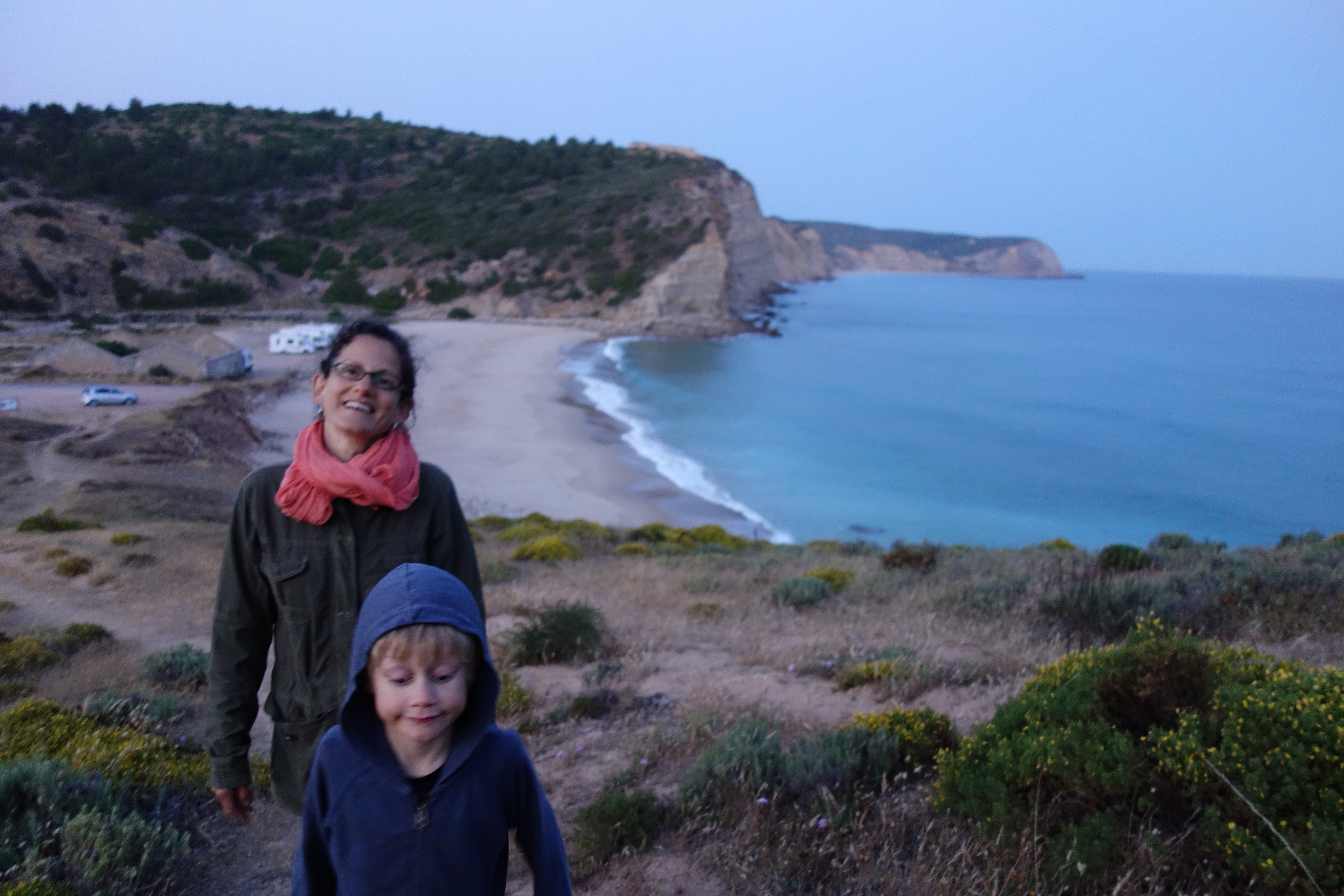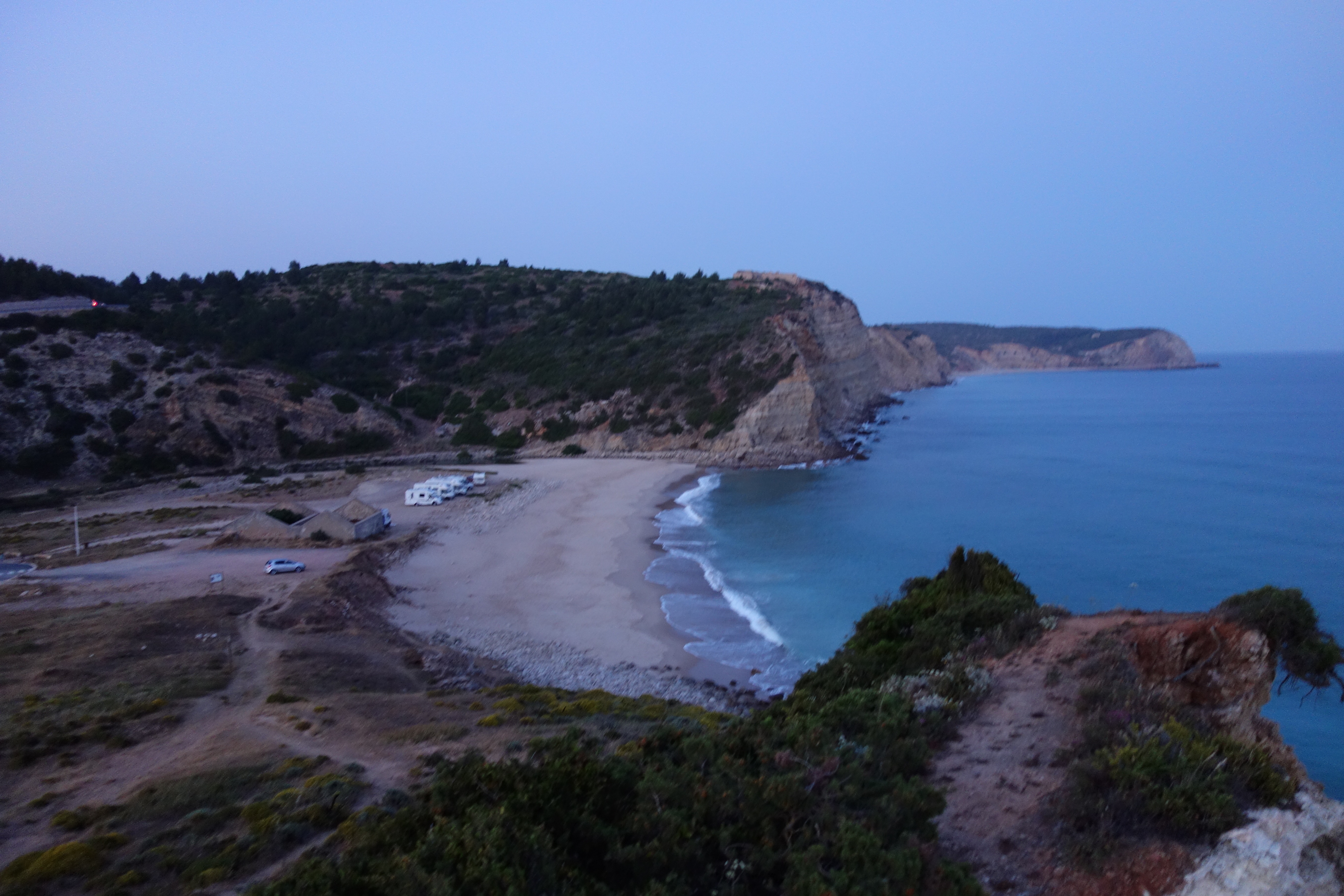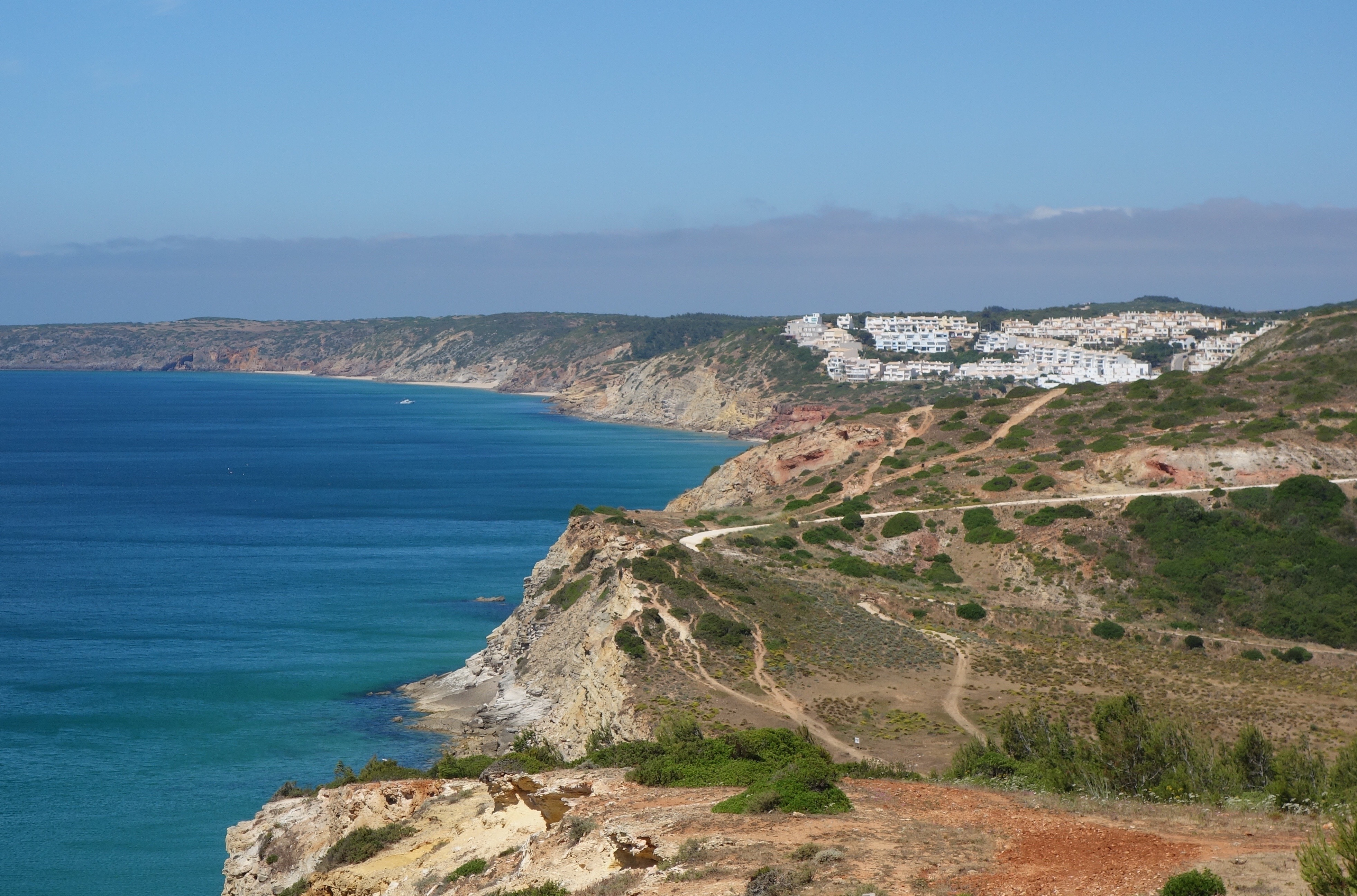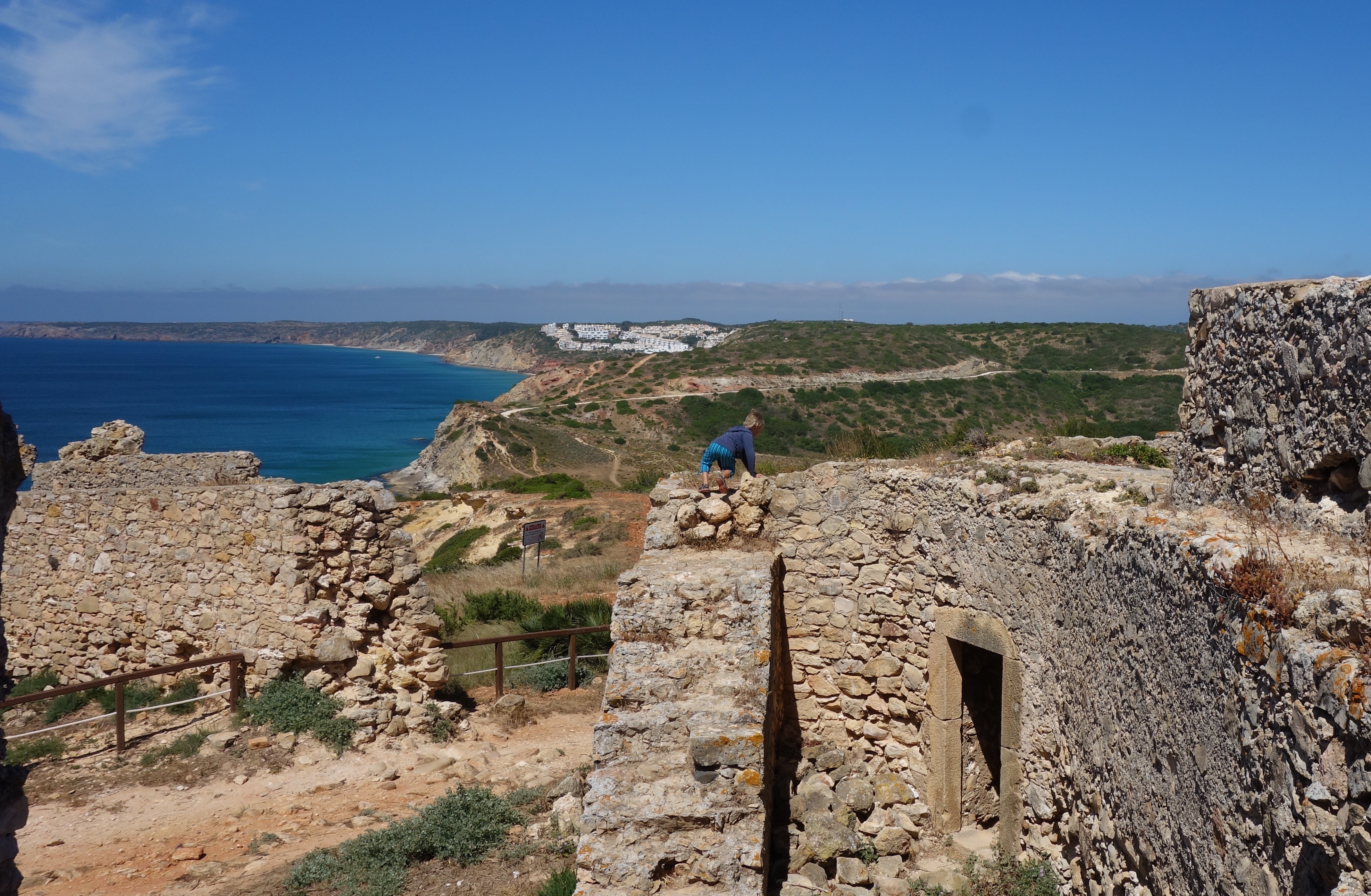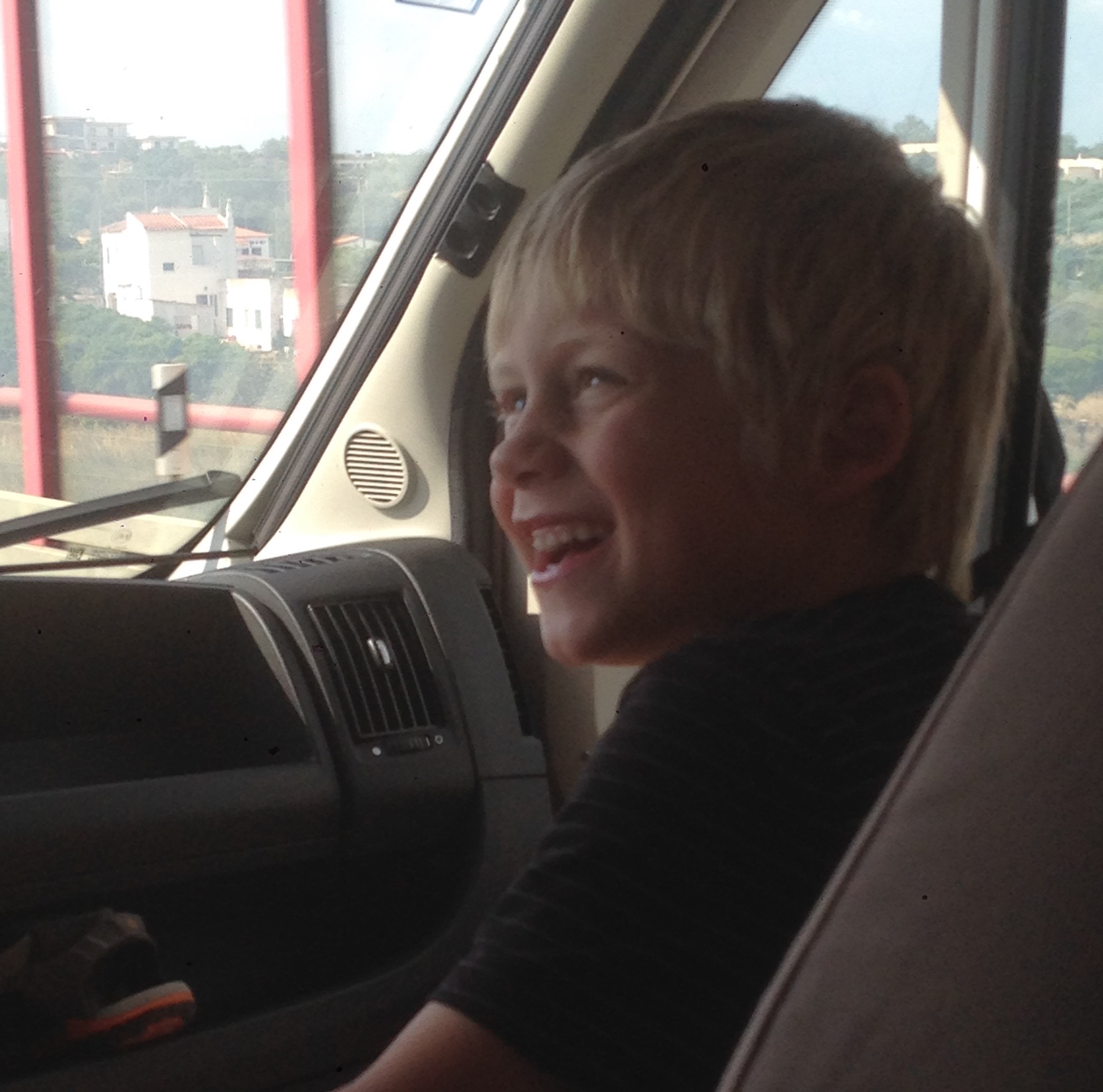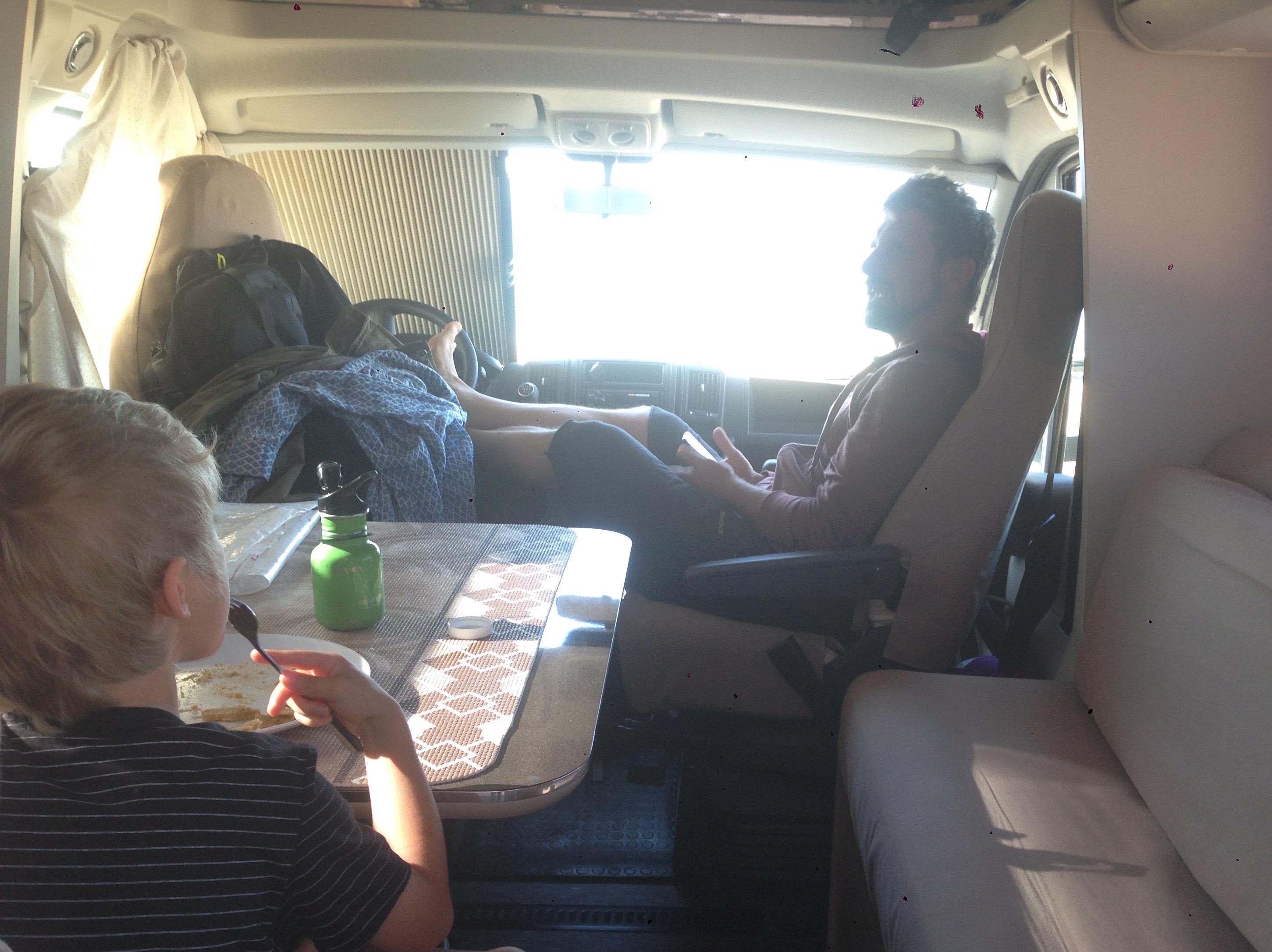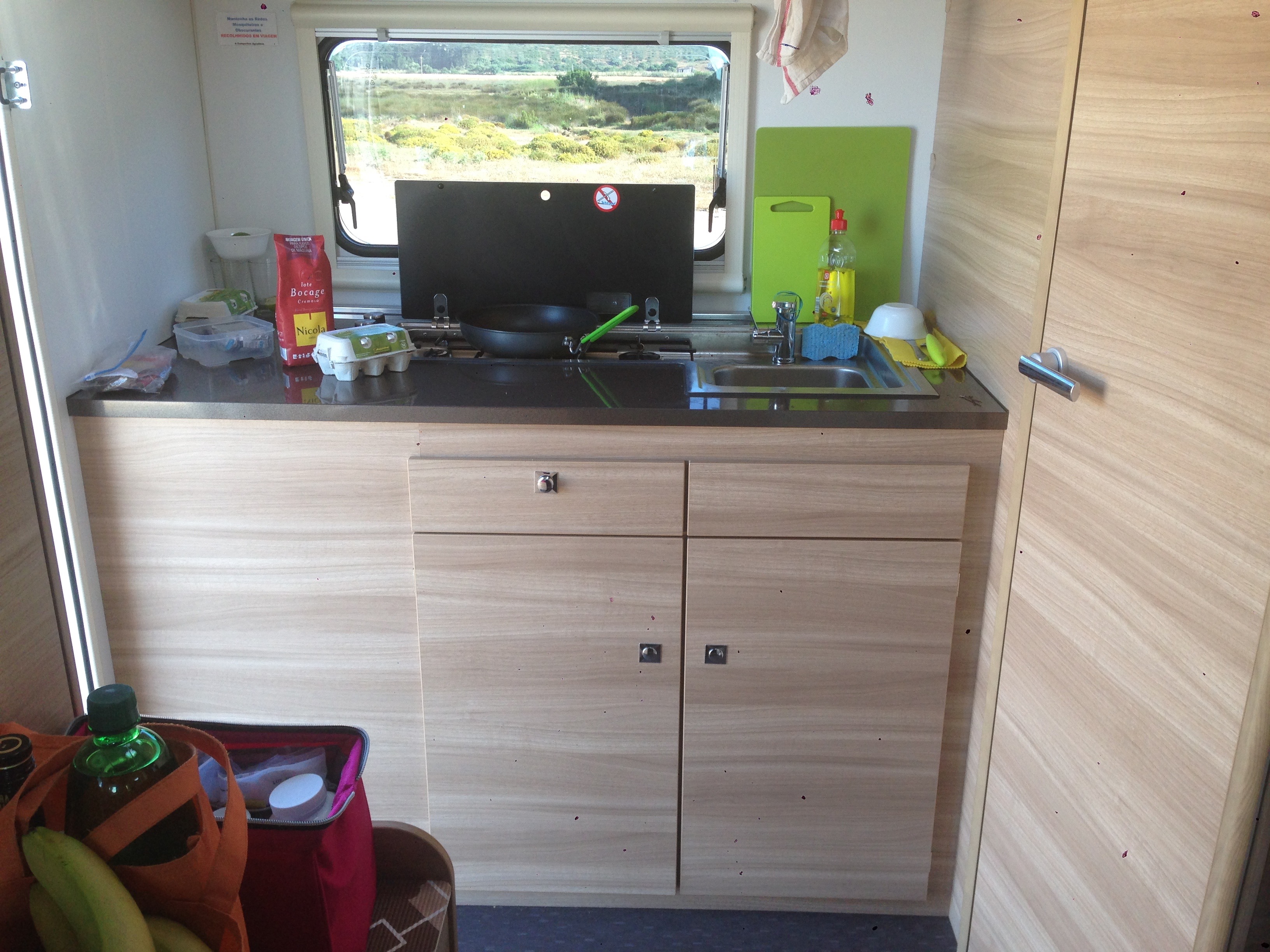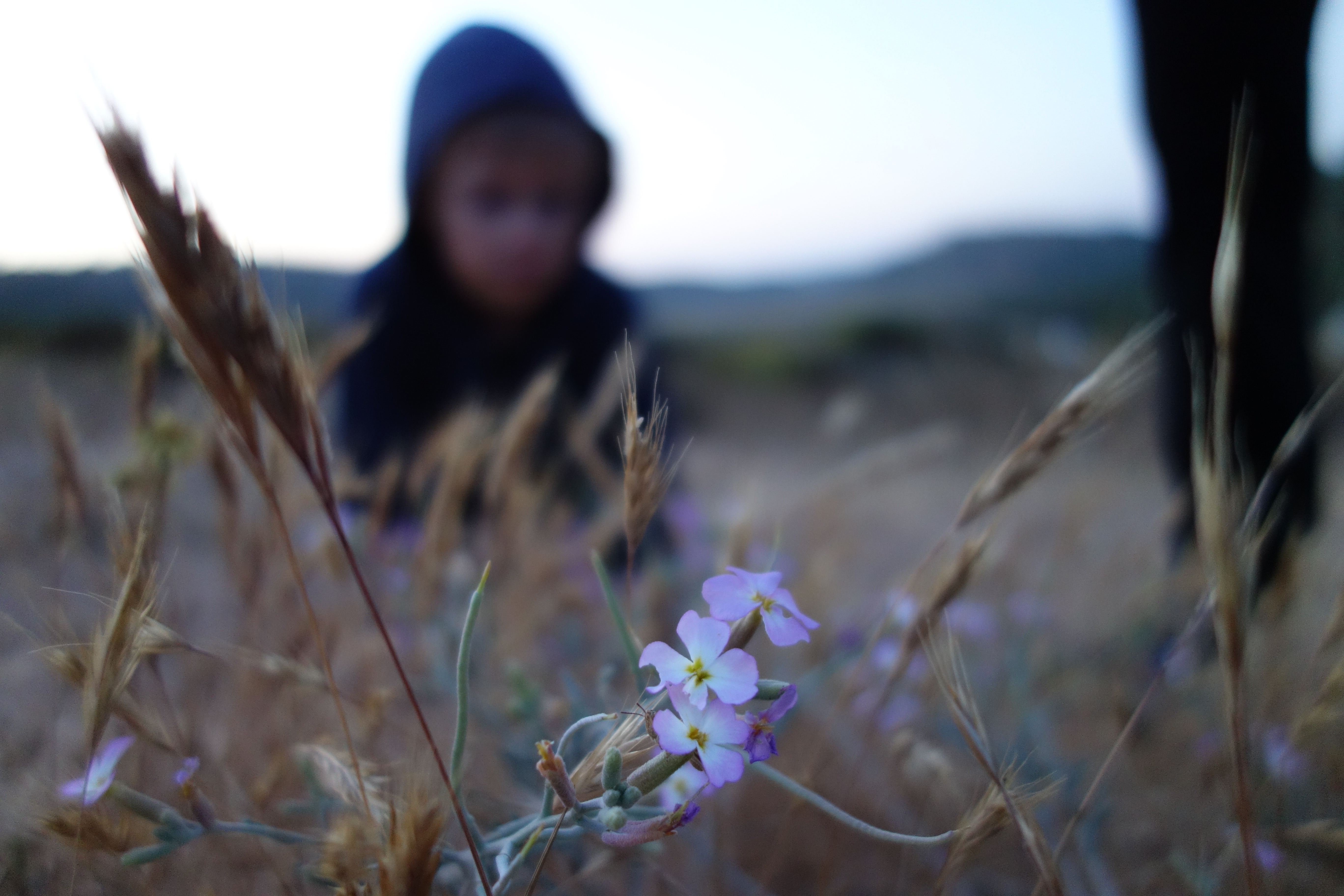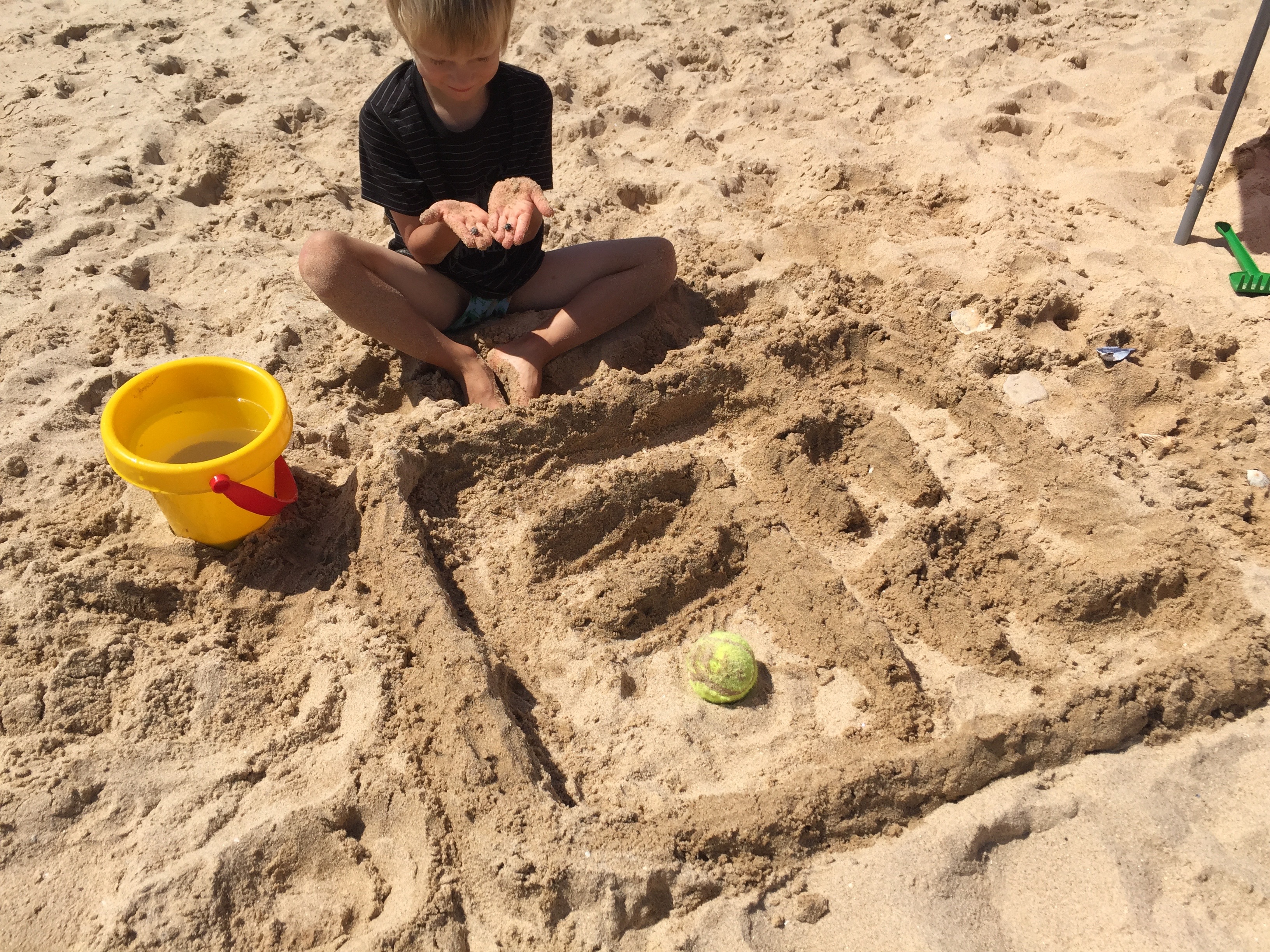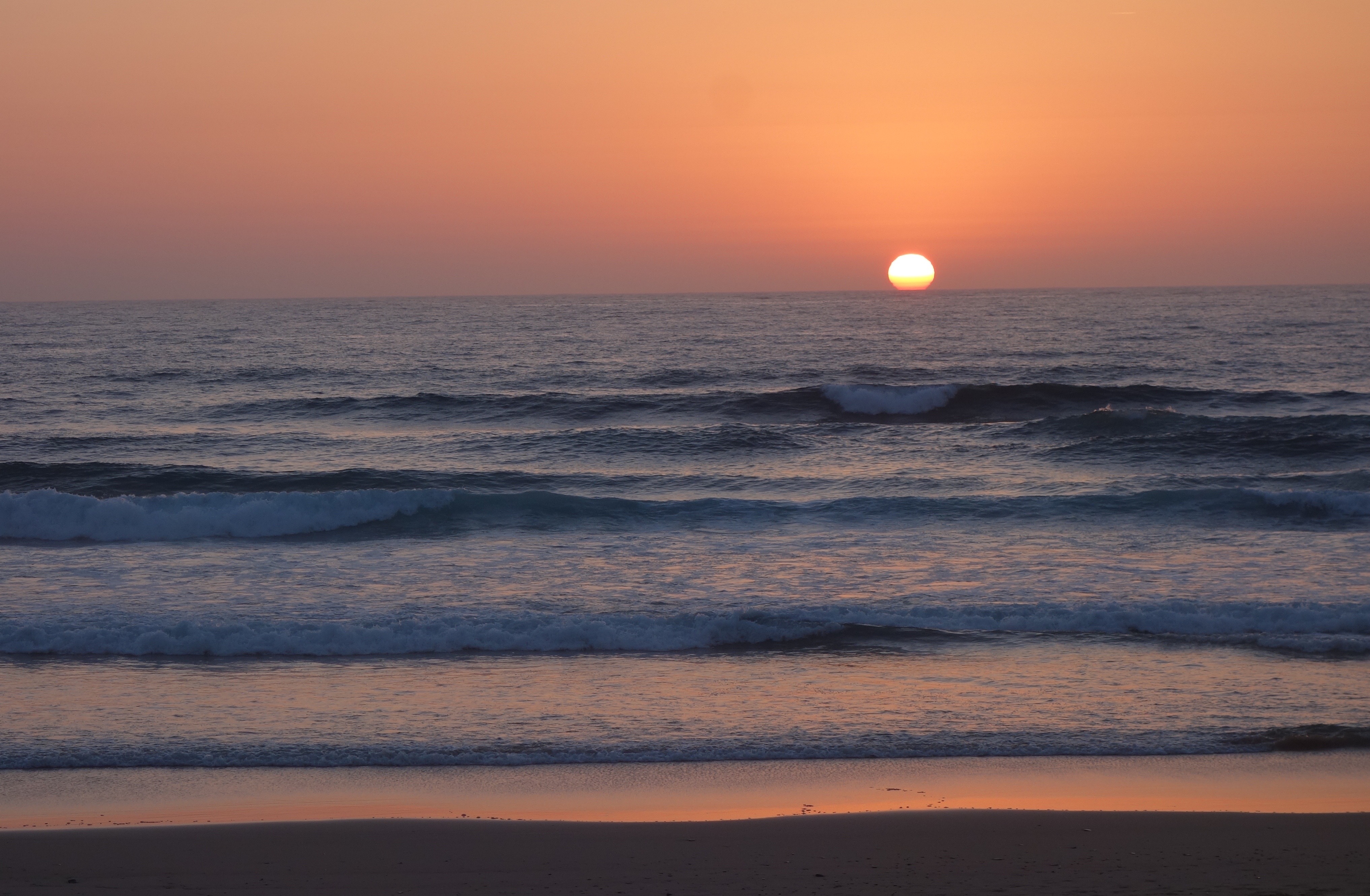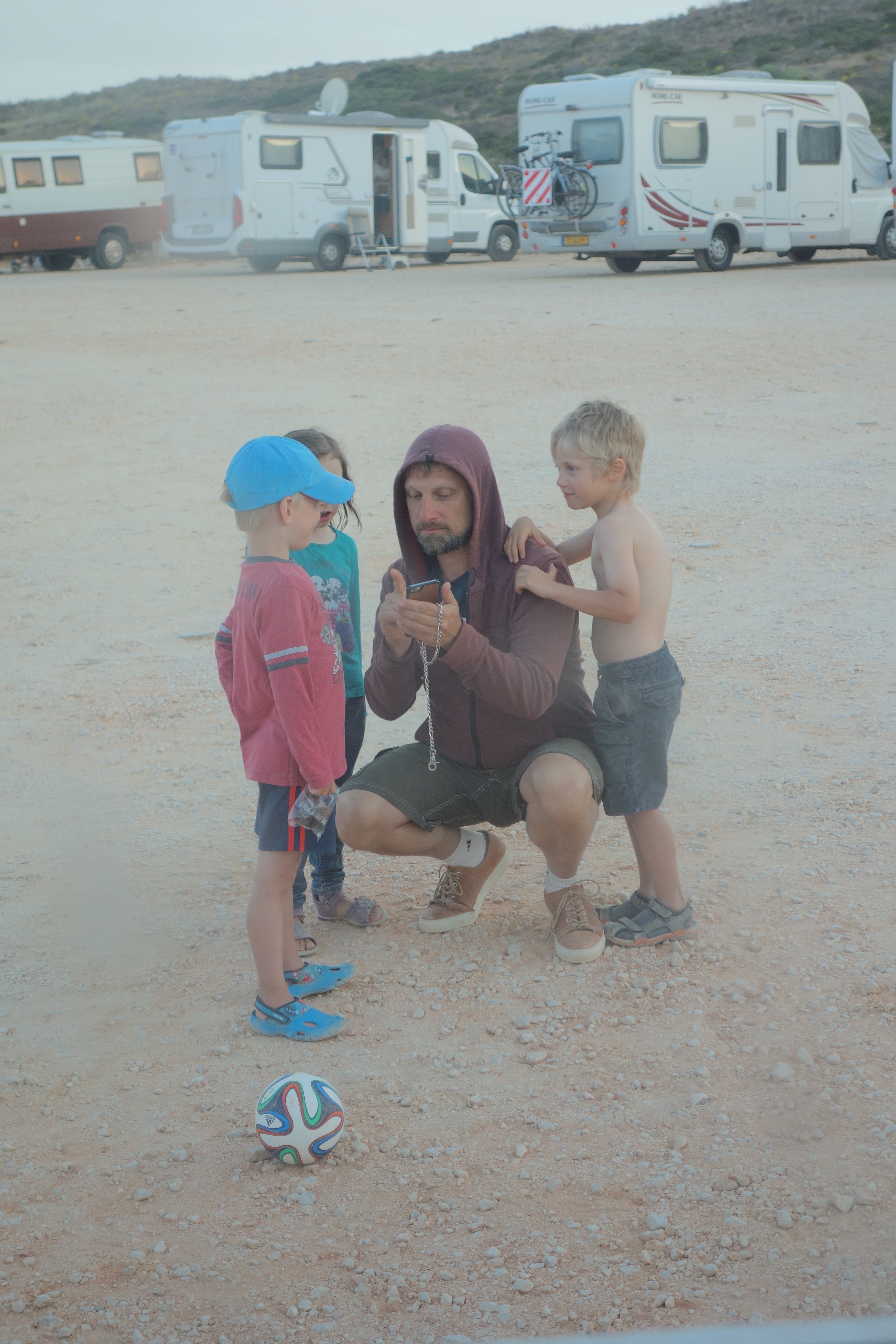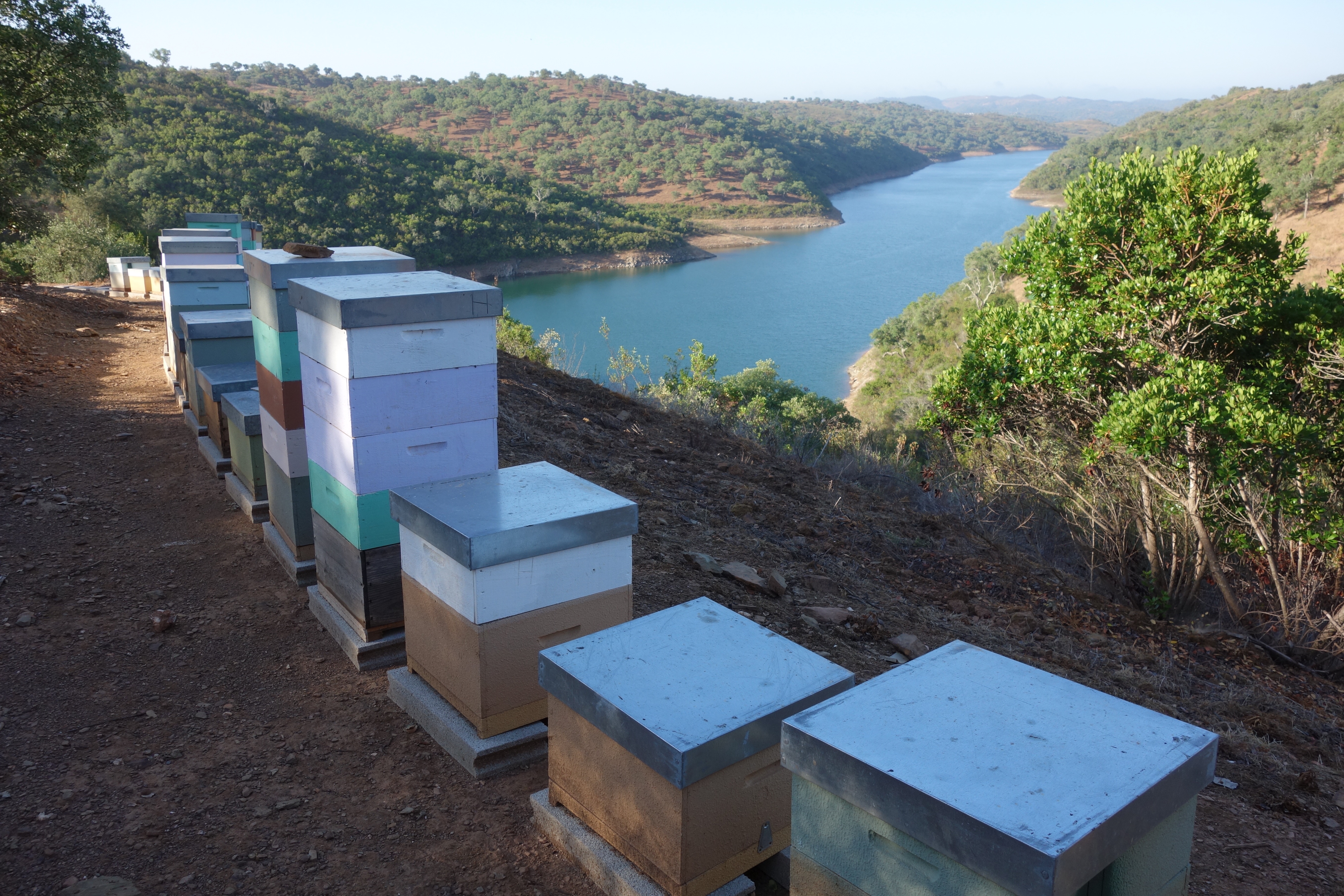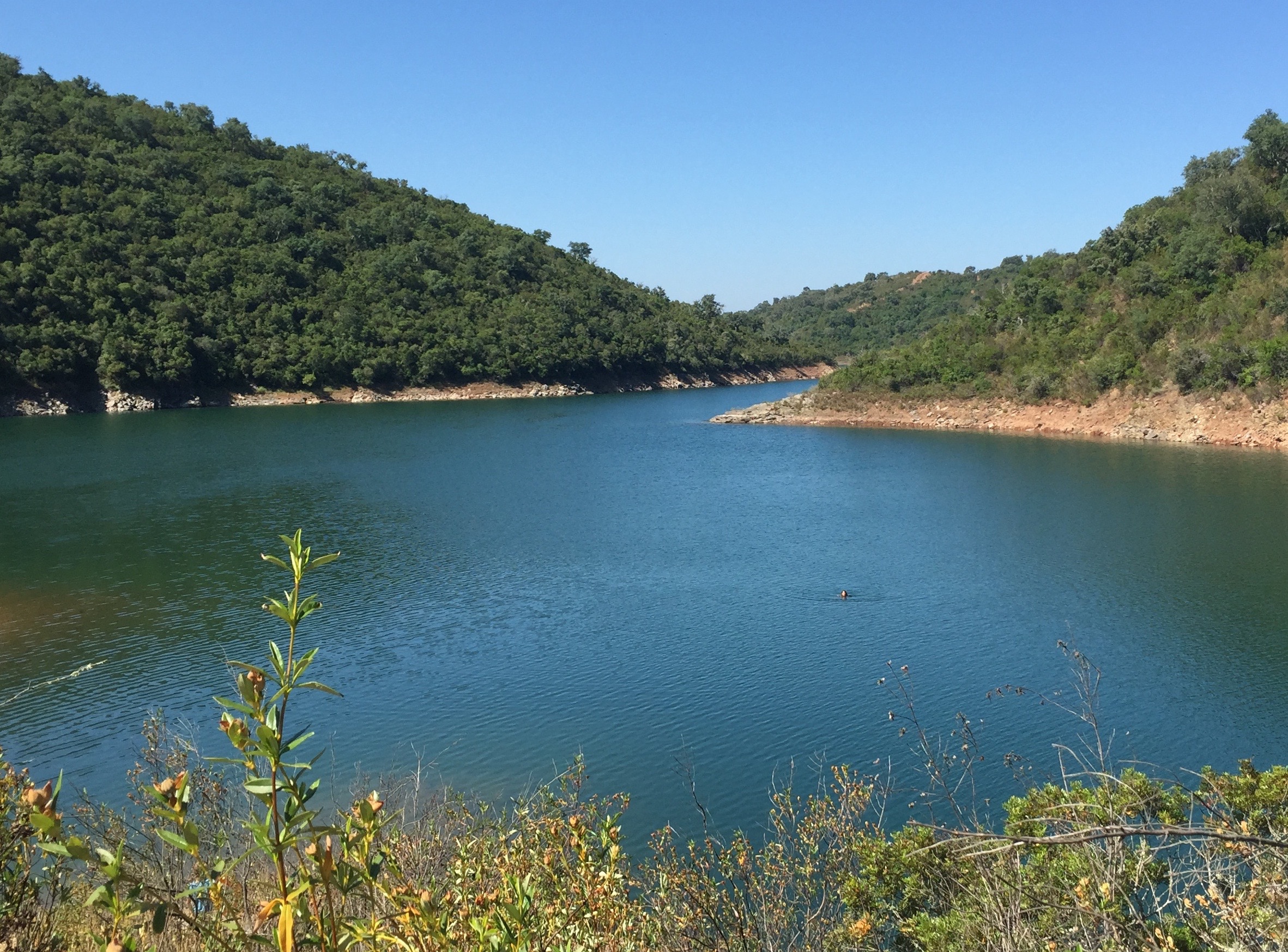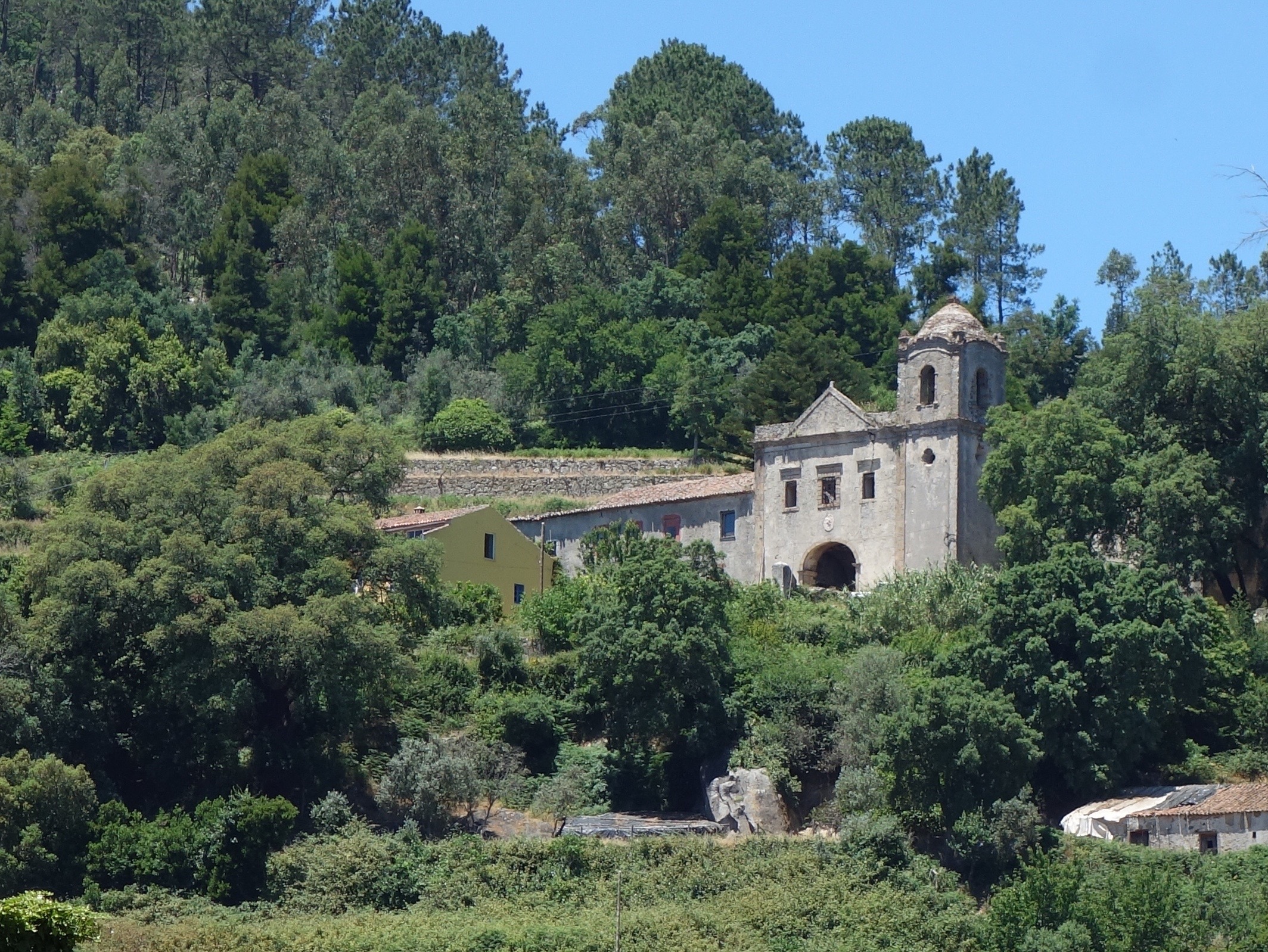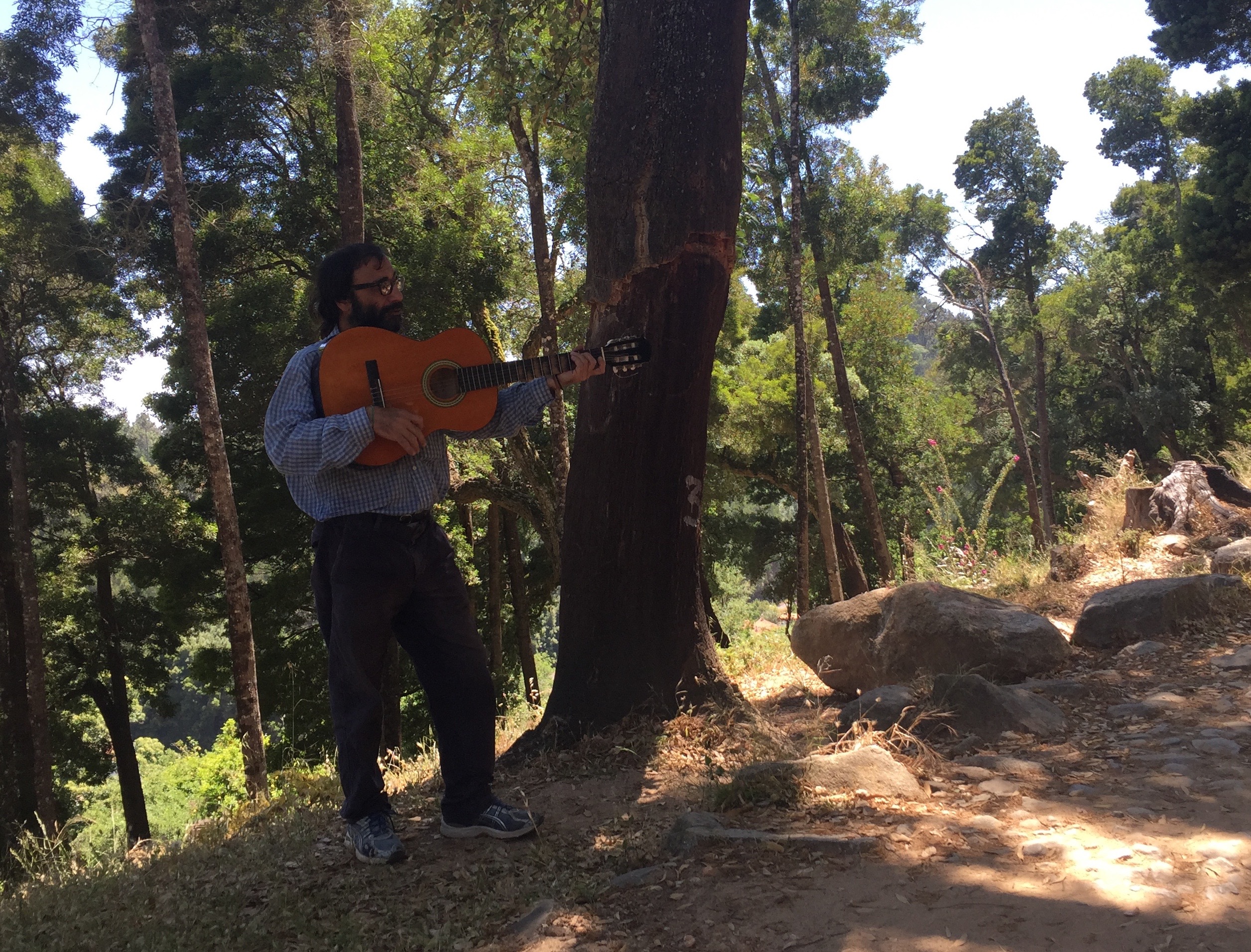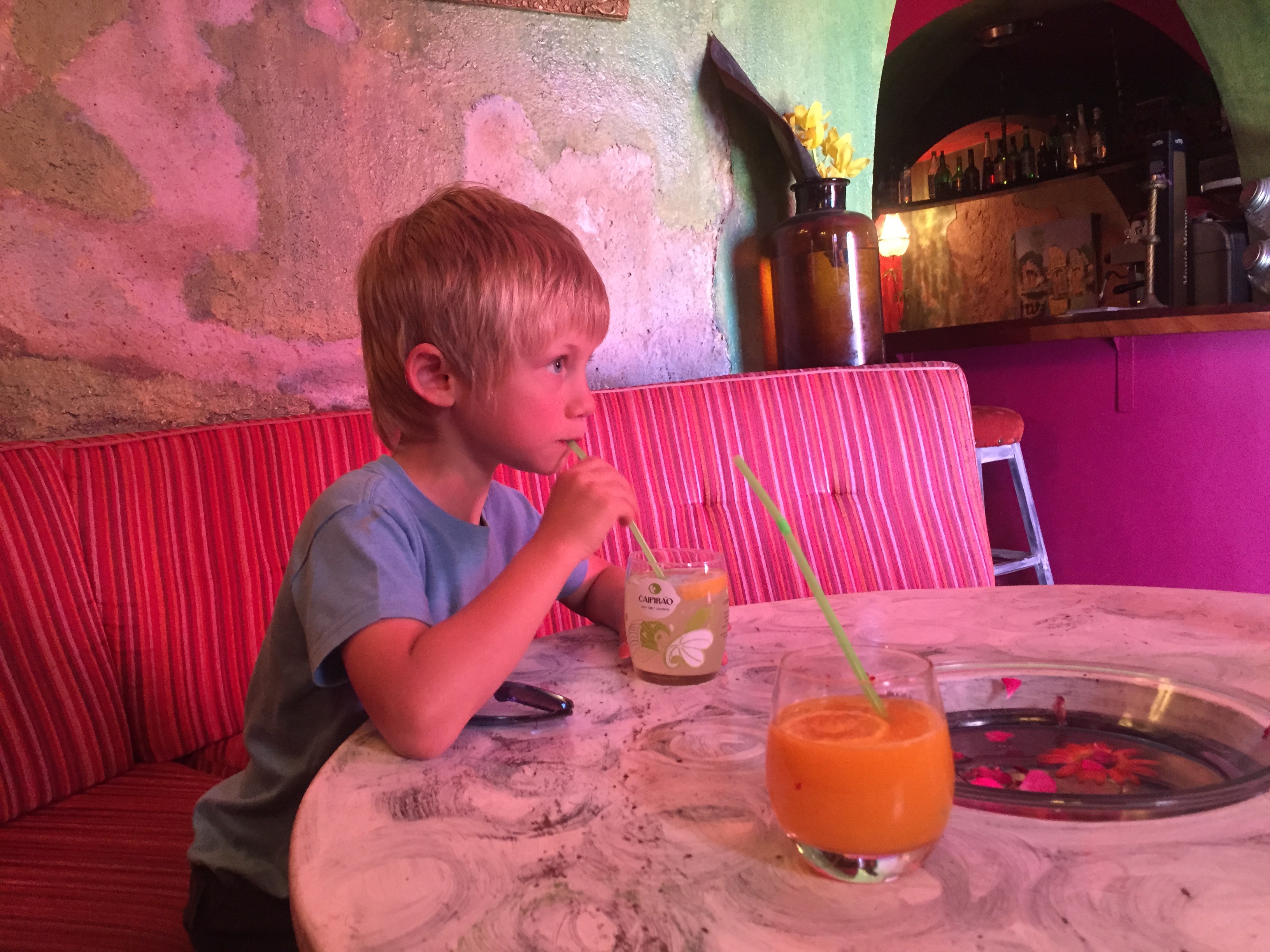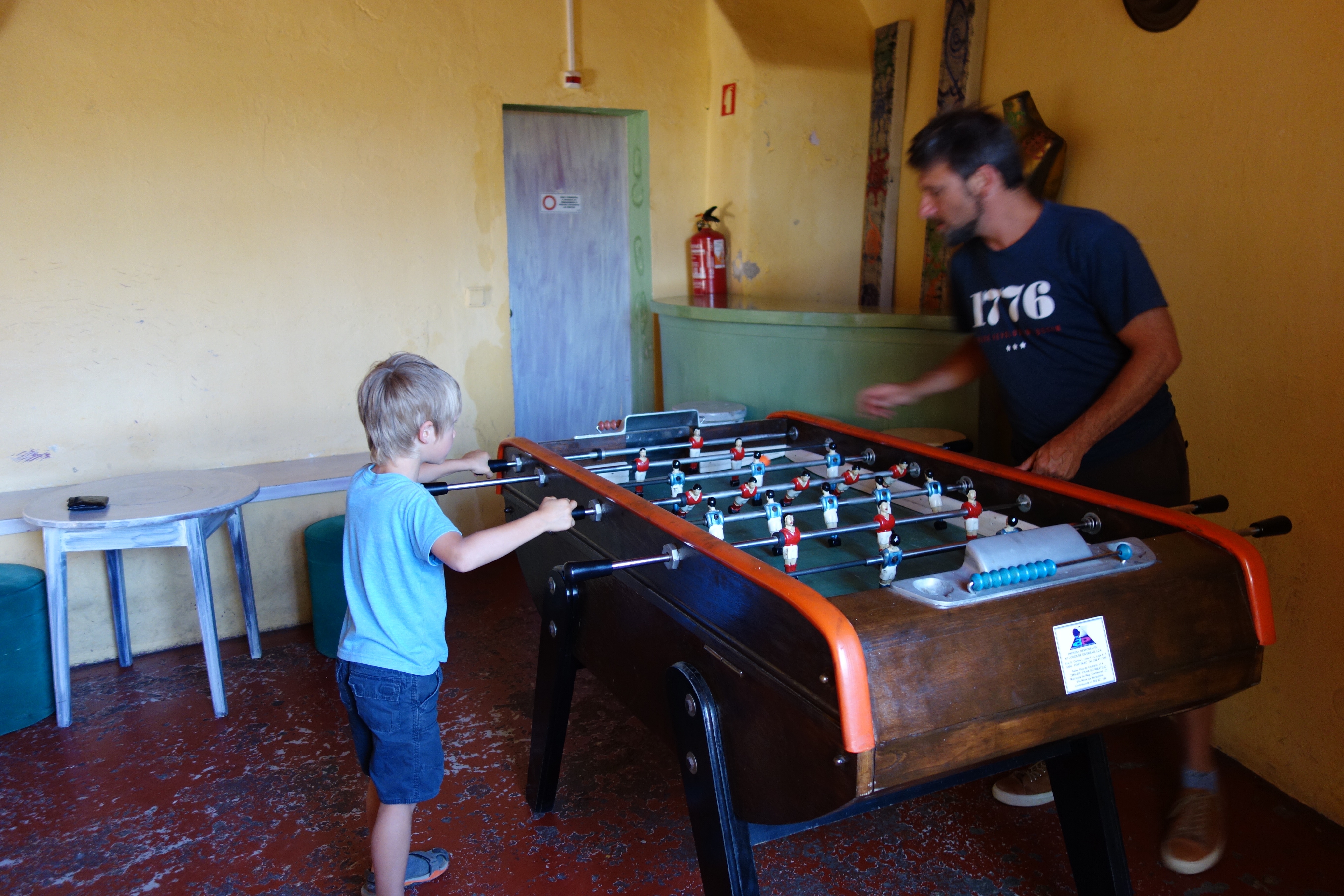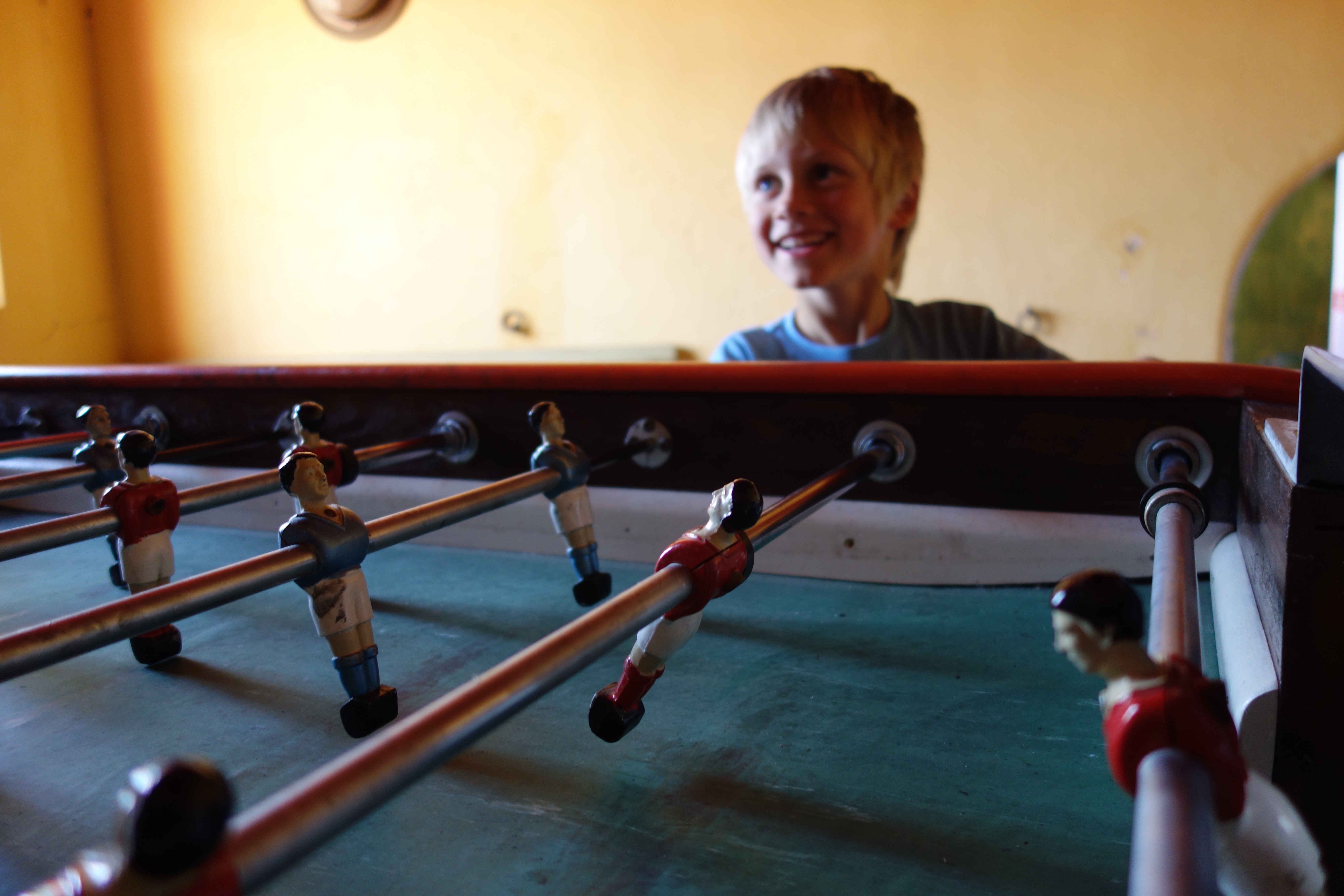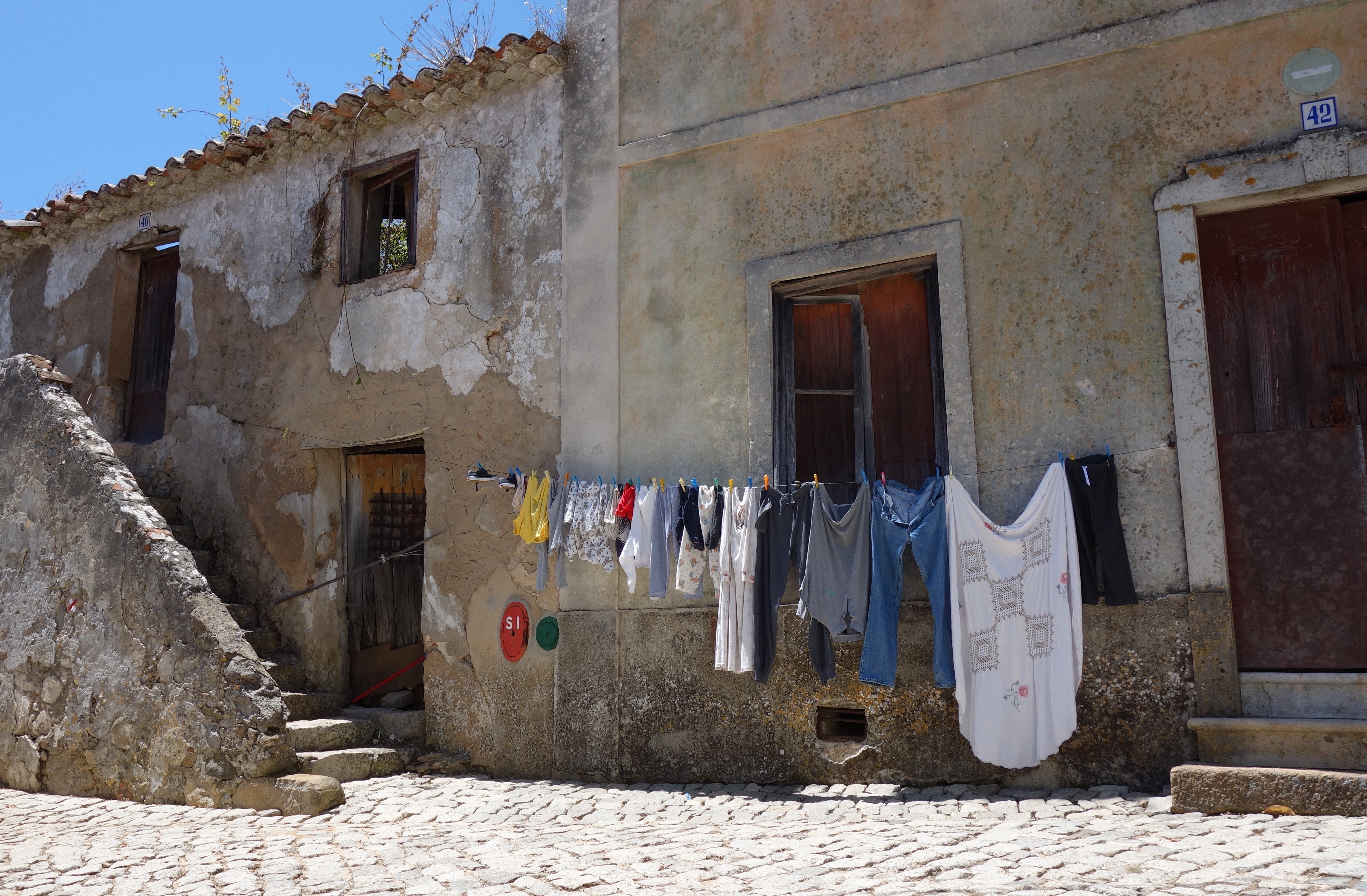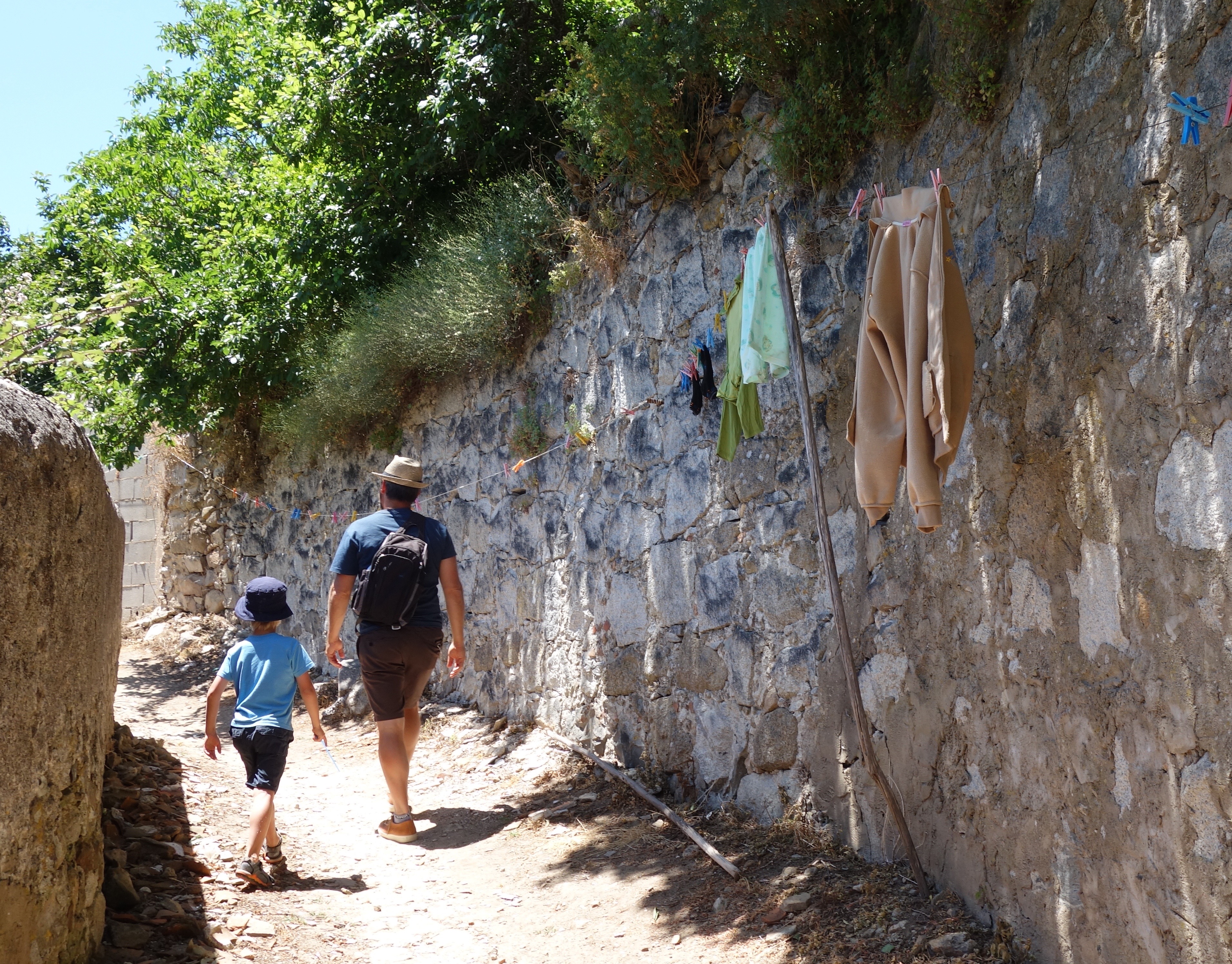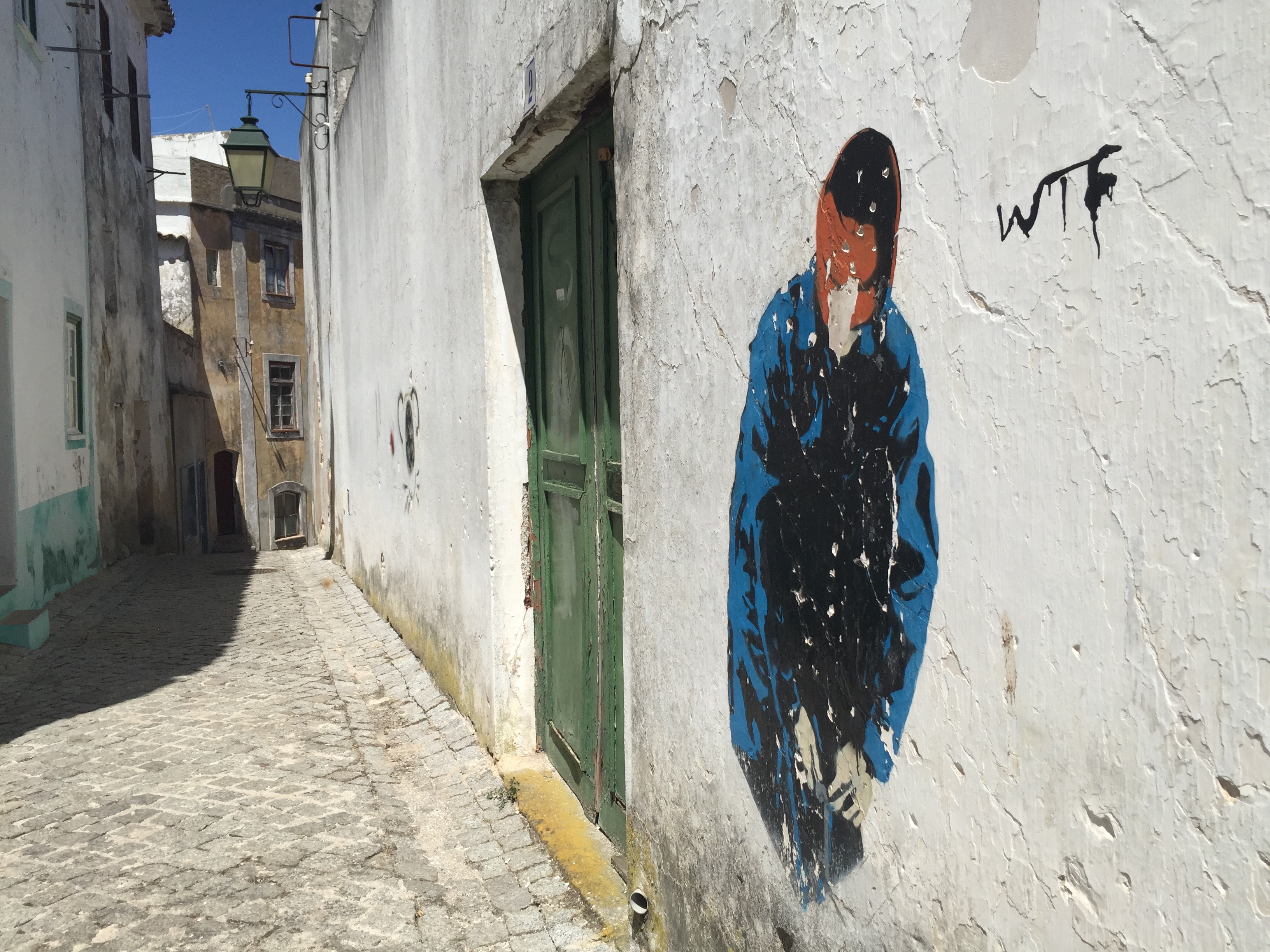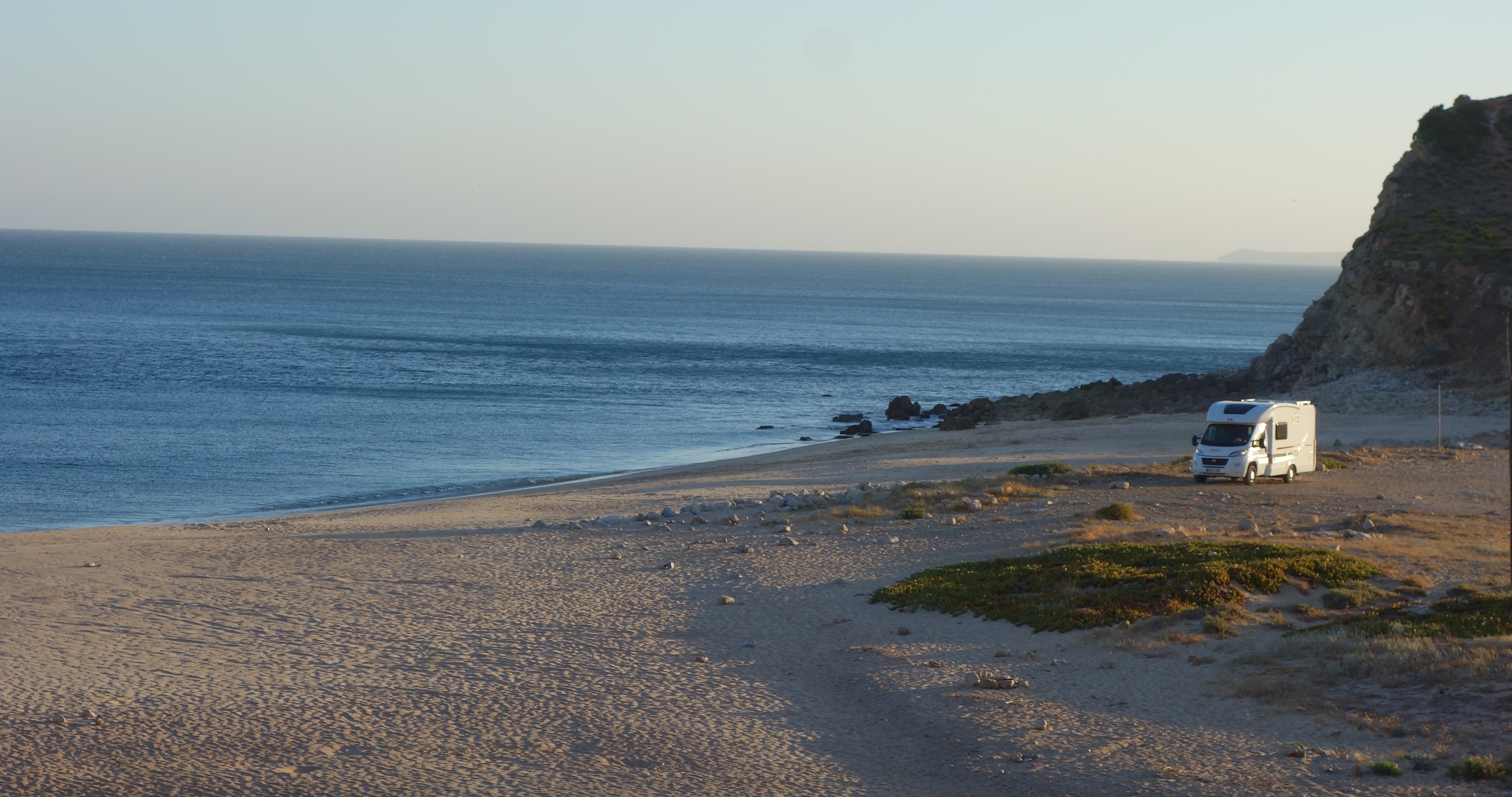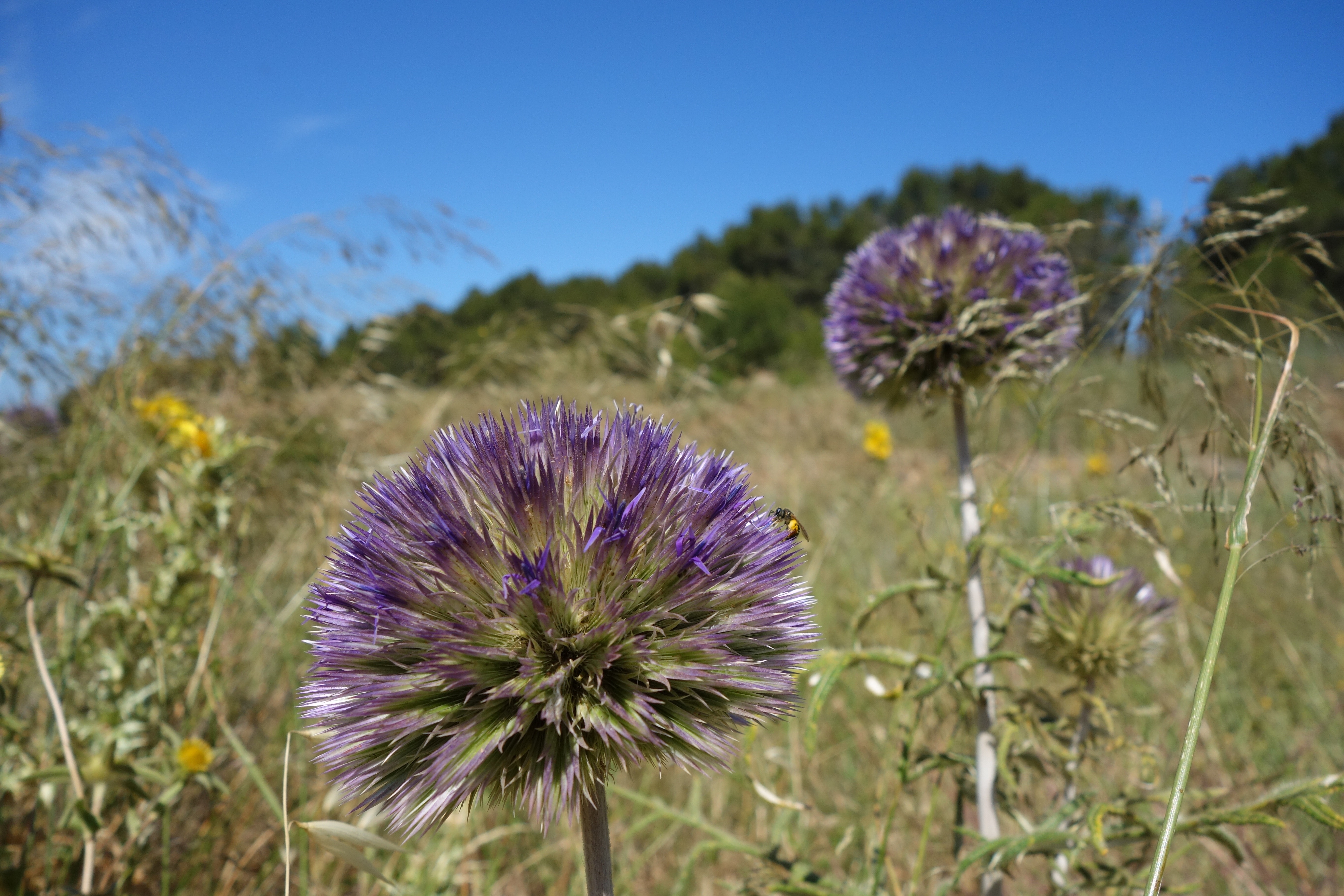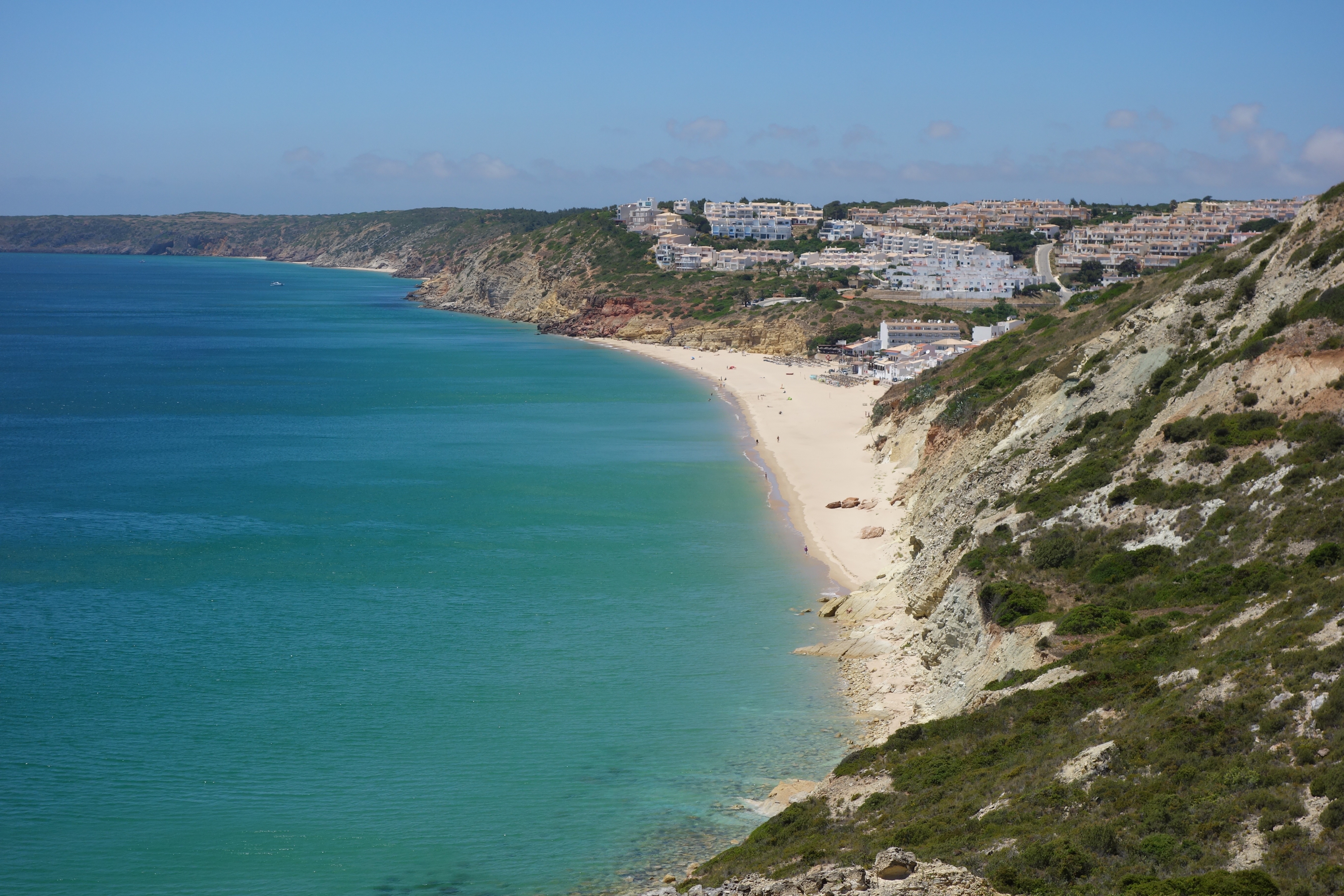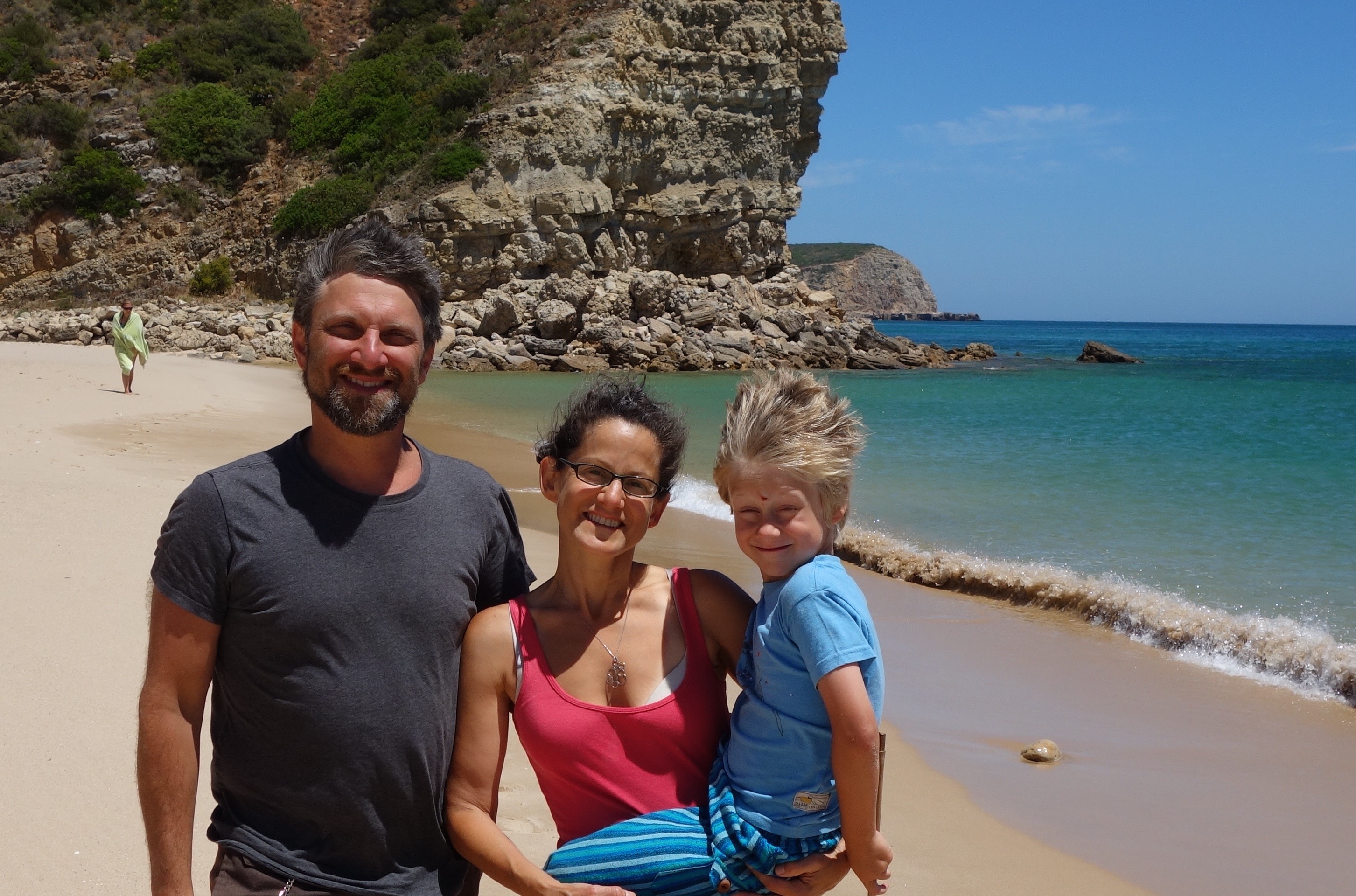But that’s hardly a reason to travel to southern Portugal.
 Fortunately, we had our escape route planned: a Matrix Adria camper van. It took many hours of web searches and phone calls to find one available on such short notice, but we did, through Camperline, and this past Monday was pick-up day.
Fortunately, we had our escape route planned: a Matrix Adria camper van. It took many hours of web searches and phone calls to find one available on such short notice, but we did, through Camperline, and this past Monday was pick-up day.
Right move. The van was a fancy new job, with a sleek three burner gas stove, two rotating captain’s chairs that, with the table seating in the back created seating enough for six, a bathroom with a shower and a decent sized bed that lowered from the ceiling at the push of a button. And all tetrised into a relatively compact footprint that allowed for parking in a large but not oversized-sized parking spot. The cost would have been about the same as an AirBnB apartment would have been (except we had to pay an extra fee to have the van delivered to us and picked up from us in Faro, on the south coast, rather than in Lisbon, three hours north.)
Armed with our Park4Night mobile app, which provided GPS locations and (mostly French) reviews of free parking spots for campers throughout Portugal, we headed west, away from the condos and resorts of the eastern Algarve, to the nature reserves and unspoilt wilds of the Parque Natural do Sudoeste Alentejano e Costa Vicentina.
After a quick stop at Harmony Earth in Luz, which we were told had the largest selection of organic goods in Portugal (that doesn’t mean as much as you might think), as well as a dense gluten-free section (tasty Easy Bean Chickpeak Crispbread, a nice change from potato-corn-rice based products) and the neighboring Baptista grocery store (well-stocked with gourmet items aimed at British ex-pats), we headed down the A-22 to our first stop, Praia da Boca do Rio, a perfect introduction to wild camping.

A tiny strip of beach nestled between two cliffs, the waves rolled gently in over powder-soft sand. The dirt parking lot was set right against the beach, assuring us of an ocean lullaby, and nature trails snaked up into the hills (and perilously close to the eroding cliff walls: over and over we were reminded how far we were from safe, litiginous America). We arrived with just enough time to make dinner, and to enjoy an evening stroll up into the scrub, where a hot, deeply fragrant breeze eased the memory of Lagos from our minds. From the top of the hill, we could see down the coast to the soft lights of Selema, a nearby white-walled town set snug into the hillside overlooking a longer beach.
Tuesday, we dug into the lifestyle: Zevin played in the sand, digging castles (and a labyrinth for a pair of captured cyclops beetles); Michelle and I read; I swam in the crystal blue water, paddling out as far as I could to take in the soaring Portuguese coastline. I hiked up briefly to the ruins 16th century fort, where my cell signal was sufficient to tether my computer and get some much needed Internet (I’ve been working throughout the trip, keeping the company moving forward).
By days end, though, we’d exhausted the wonders of that particular beach, and wanted to explore a bit more, so we stowed things away and rolled on. We made a brief stop in Sagres, on the southwestern tip of Portugal, but a big stone parking lot next to the tourist attractions didn’t quite fit our dream, so we headed north to the next spot for free beach parking listed on Park4Night, Praia da Cordoama.

The beach itself was gorgeous, long and flat with interesting rock formations to explore, and a german couple with four children camped next to us. With a bit of modeling and encouragement, we managed to get Zev and Hans, their four-year-old, playing together happily, chasing balls around the windy lot.
Astoundingly, their family of 6 was taking advantage of Germany’s “one year of maternity and paternity leave” rule, and planning to live out of their small motorhome for the next year (with an eye to relocating permanently to Portugal, where the surfing is good, if they could make the work work).
In the end, though, Cordoama was a bit too isolated for us. The water wasn’t really swimmable unless you were surfing, and there was no wifi / cell signal, so I couldn’t check in with work. While our app didn’t have recommendations nearby, Hans’ family tipped us off to a beach just 20 minutes north that included a large, warm and shallow lagoon that was good for playing in, and that had a good lot of camping, so we packed up early the next morning and moved on.
The lagoon at Praia da Bordeira offered a solid day’s entertainment. Michelle gave Zev some swim lessons, and the soft sand dune that ran along it offered endless jumping and tumbling opportunities. Zev and I spent a good hour plus just shooting slow-motion video of him leaping off the edge of the dune down into the sand. When the air started to cool, we wriggled our bodies down into the dune’s warmth.

We also found other good entertainment for Zev there, both from a Polish and German child (who spoke only Polish and German, respectively) traveling in neighboring campers, as well as a game of Pétanque with a group of French travelers (again, not a word of English spoken by any but us).
Finally, though, we needed a break from beaches, so we headed inland towards Santa Clara lake, a huge man-made reservoir in Portugal’s southern interior. The water there was clear and warm enough for a lazy swim, and a stroll into the surrounding hills offered views great and small: long fingers of water stretching between the hills, a toad hopping through the prickly grass, an apiary tucked behind a hillside. The mountain air was hot and dry and thick with eucalyptus and desert scents and my head swam dizzy and buzzed.
 We had the campsite to ourselves, and the change from the constant roar of the ocean to an enveloping silence was profoundly comforting. We tried to count the different calls of the birds in the evening, but lost track. When I slipped out of the van in the middle of the night and walked to the center of a neighboring bridge, there wasn’t a whisper of breeze, no rustle of leaves, not a chirp of an insect. The quiet was ravenous, devouring even the beat of my heart, the silence so thick and deep, it felt like the moon had hushed the stars.
We had the campsite to ourselves, and the change from the constant roar of the ocean to an enveloping silence was profoundly comforting. We tried to count the different calls of the birds in the evening, but lost track. When I slipped out of the van in the middle of the night and walked to the center of a neighboring bridge, there wasn’t a whisper of breeze, no rustle of leaves, not a chirp of an insect. The quiet was ravenous, devouring even the beat of my heart, the silence so thick and deep, it felt like the moon had hushed the stars.
We took our time the next morning, diving off the rocks, paddling around the reservoir and talking to the echoes that bellowed back at us on command, then reluctantly began our slow trek back down to the shore. We paused for a stroll in quaint, sleepy (and mostly shuttered) Monchique, and eventually rolled our way out of the mountains back for a final night back at Praia da Boca do Rio.

The powerful Mediterranean winds were kicking up, with gusts to 20 and 30 mph coming hot out of the hills and billowing across the water, but that offered its own lullaby: when we slept in the van that night, it rocked and hummed and we slept warm in our camper cocoon.
The next day, our last in Portugal, I dove into the water for a last swim, and then we all hiked up to the nearby fort before rumbling off to Faro to drop off our van. That night, we took a nice stroll through a tangle of tiny villas and shanties at the end of the long, thin island, but mostly packed our bags for the next (and last) stop in our adventure.
Adeus, Portugal. Next stop: Amsterdam!








